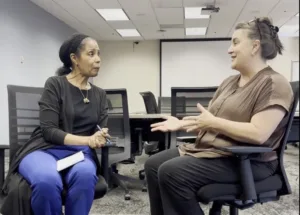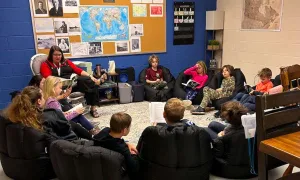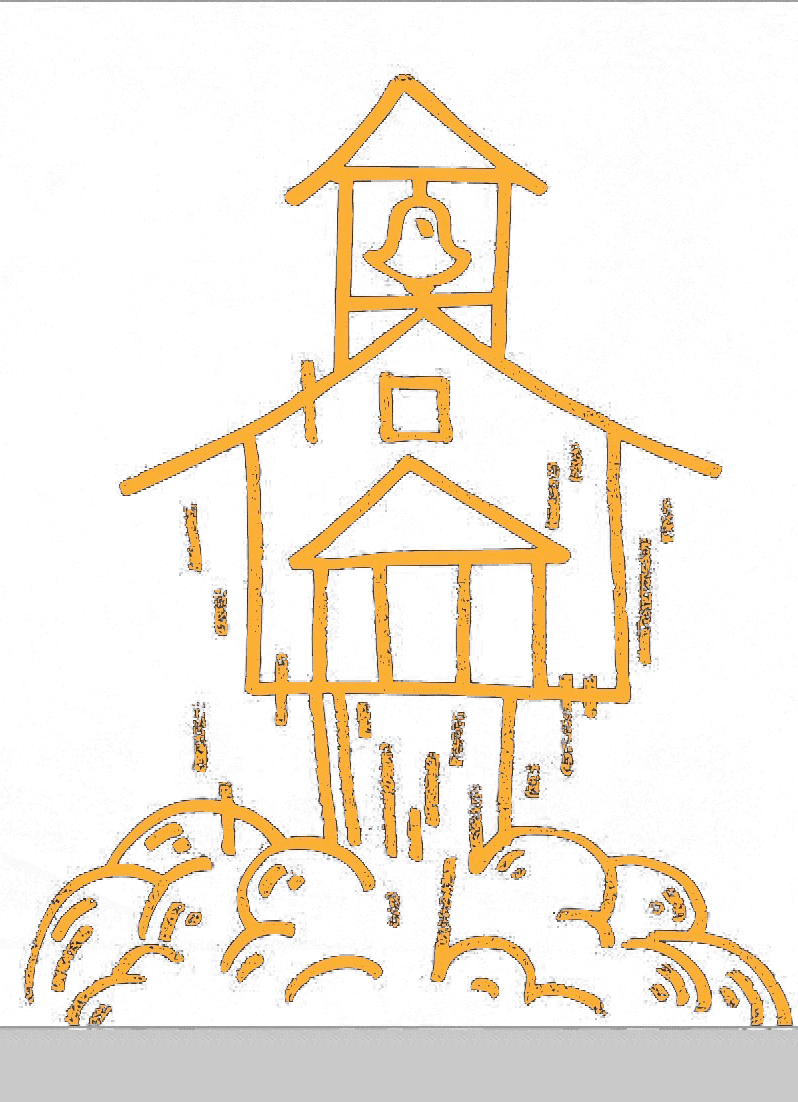Since the pandemic, talks of the future of education have taken the Internet and academic world by storm. While much of the media attention has been focused on parents and institutions, there’s been very little overall coverage of the learners who are participating in the educational alternatives that have emerged since 2020. However, nearly 6 percent of the US student population are being homeschooled, in addition to students learning in new alternative schools. So it’s fair to say that the voices of these learners are important to maintain a clear picture of the unconventional education movement and its momentum.
I’m a homeschool graduate, so I grew up knowing that unconventional education provided me unparalleled flexibility, freedom, and personalized learning that just wasn’t possible in public education. Yet I’ve never seen homeschooling and other alternative educational methods receive so much positive attention until recently.
Still, many are questioning whether or not these unconventional models will prove effective over time and whether the output from these alternative learning environments will equate to more success for learners. I believe that unconventional learning models have already proven themselves effective during the pandemic, and will only continue to impact the lives of students as these models expand.
To get a student’s perspective on this topic, I interviewed three homeschoolers who either attend or have graduated from a homeschool program or other non-traditional learning environment. I wanted to understand better how learners view unconventional education and how that plays into their future goals and ambitions.
1. The Freedom and Flexibility of Learning
One of the biggest benefits when I was homeschooled was the flexibility of when I learned and how I learned. If I wanted to start a business, volunteer in the community, or practice a sport or art, I could do so without being confined to a classroom for an extended amount of time. This is exactly why Jordan Wright, a student at Cultural Roots Homeschool Co-op, is also such a fan of learning unconventionally.

Jordan is currently a high school student at Cultural Roots Homeschool Co-op in Richmond, Virginia. Jordan is a big fan of homeschooling and was recently featured in a documentary on the benefits of homeschooling that highlighted stories from within historically underrepresented communities in Central Virginia. Jordan is an avid environmental activist and the co-founder of a small STEM-focused business.
Jordan says that people often misinterpret her having more flexibility in her schedule as a homeschooler as a lack of academic rigor, but that’s far from the case. “One thing I hear a lot is that people assume I’m not as serious about my academics and it’s not as rigorous. I still take the same classes, but the time I spend on them, and the amount of unconventional classes I take makes it different. It looks much different from a traditional school.”
Jordan uses the extra time to pursue her love of science, hosting classes in partnership with her 4-H Club, running her business, and staying active in her local community. Last year, Jordan was able to participate in the Black Engineering Institute at Virginia Tech. She was also a youth speaker for a special event at the Science Museum of Virginia called Up & Atom. Her organization, Cool Kids Science RVA, has hosted over 30 different workshops and events for kids in her community, including summer camps.
Being homeschooled, Jordan says she was able to take time to work on her business and expand the reach of her advocacy. Jordan is now the Henrico Youth Ambassador for Keep Virginia Clean initiative, helping to inform her community about pollution and littering and advocate for clean parks and other public spaces.
When asked who inspires her most to reach her goals, Jordan says it’s her older sister, who was also homeschooled. As a homeschool grad, her sister is now a PhD student at a very prominent US university studying biomedical engineering. Jordan says her sister has “inspired me to reach for my goals, she is one of my biggest inspirations.” Jordan’s future goals include going to college for mechanical or environmental engineering, and she is presently looking into applying to Virginia Tech.
2. Shaping the Next Generation of Innovators
Like with Jordan, unconventional education is also paving the way for more learners to build successful businesses and develop new innovations sooner and more effectively than ever before. As a homeschooled student, I was afforded the schedule that fit my desire to build a business in both middle and high school. It made a huge difference in the career path I chose. With the added time available to learn what’s relevant to them, learners are leveraging unconventional education to learn and hone skills that will be vital as an entrepreneur and in the 21st-century workforce. This is why Yasad Isra-Ul, recent homeschool grad and entrepreneur, is extremely grateful to have been homeschooled.

A visual artist and digital designer since he was twelve years old, Yasad is now the founder and CEO of YasadCreativeStudios, a graphic arts and animation studio focusing on mental health advocacy and neurodiversity awareness. Being neurodiverse himself, Yasad is passionate about storytelling and helping others embrace their unique stories.
“A lot of people believe that we [as homeschoolers] don’t socialize,” Yasad says. “But that’s not true. As a student, I visited libraries and museums, went on field trips, and met up with other homeschoolers. Being homeschooled helped me prioritize what I really wanted to become and study that.”
As an ADHDer, homeschooling helped him focus on learning at his pace and embrace movement and creativity to study. He was able to graduate a year early from high school and decided to take a gap year exploring the visual arts and building his business. He has had nothing but resounding success. Recently, he was a seed prize awardee and contender for the 2024 Ashoka x Taco Bell Ambition Accelerator, and a recipient of a Hershey’s Heartwarming grant for his community advocacy. He has volunteered to support other homeschoolers and is about to publish his first children’s book on the importance of being yourself, with lessons on neurodiversity and self-esteem. His work continues to inspire others, and he hopes that he can open the door for more young people to pursue entrepreneurship.
Yasad says that his future goals include further expanding his business, changing the narrative on mental health and neurodiversity through art, and eventually becoming a life and career coach to help others embrace their unique stories and become advocates for things that inspire them.
3. The Future of Education Is Bright
The students and grads interviewed above are a part of a larger movement of young people who have leveraged the freedom, flexibility, and personalized learning that comes with unconventional education to build, create, and innovate. “Being homeschooled,” Jordan said, “I was able to work on this business more throughout the day alongside my siblings, as well as host workshops for other homeschoolers in my community.”

While it’s fair to say that not every graduate of an unconventional education program will build a company or speed through high school, we are seeing how unconventional education can make it easier for students to feel empowered to dream big and start pursuing their passions earlier in life. The promising output of these programs is a good sign that those graduating from these programs will be better equipped with the skills and knowledge necessary to do whatever they put their minds to.
Homeschool grad Grace Lever shares this perspective. Grace attended Baker Creek Academy, a learning center for homeschoolers in Arizona. Grace says, “One of the things I love most is the autonomy to explore subjects that excite me without being confined by rigid school schedules or standardized curriculums.” Grace is an avid traveler and entrepreneur. As a middle schooler, she started her first small business and participated in a cake decorating apprenticeship. By the time she was in high school, she had joined the Marine Corps’s Devil Pups program and eventually became the first-ever female intern at a rural language immersion camp in the Southwest US. “A common misconception about homeschooling is that it’s all laid-back, pajama-clad days filled with paper crafts and leisurely learning.” Grace says, “In reality, homeschooling is often a dynamic, high-energy environment where we’re actively engaged in rigorous, personalized education.” Grace now has plans to travel the world, expanding her horizons through entrepreneurship and exploration. “Having charted my own unique journey, I know the transformative power of choosing a path that aligns with your values and passions. I hope to empower others to embrace their individuality and dare to learn, grow, and achieve in ways that defy expectations.”
And at the heart of it all, Grace says, “I see myself as a world-traveling cowboy—embodying the grit, freedom, and untamed spirit of the Old West while exploring new frontiers.” So, “whether it’s riding horseback across foreign landscapes or connecting with cultures that share a love of the land,” Grace plans to live a life “rooted in adventure, respect for tradition, and a quest for the extraordinary.”
Learners are not held back by homeschooling or attending a microschool, virtual school, co-op, or other educational alternatives. Instead, these learners are encouraged to embrace innovation and advocate for change, and they often have more time to pursue their dreams earlier in life. For me, without being homeschooled, I would not have had the space or time to dream, nor would I have become the person I am today.
“I think unconventional education did have an impact on my success,” Yasad shared, “mainly because it taught me that you could build anything you put your mind to as long as you had a good plan, a good idea, and a passion for it.” The future of education is bright, and unconventional education is helping students excel and achieve like never before.





